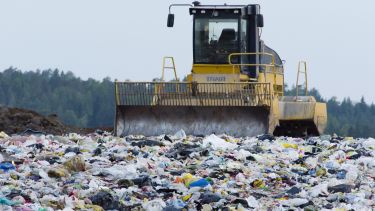Research projects
Read about some of our recent projects.
Realising the Transition towards a Circular Economy: Models, Methods and Applications (ReTraCE)
This network brings together an exceptionally strong team of world-leading experts from a wide set of beneficiaries and partners in order to achieve breakthroughs in understanding how the transition towards a Circular Economy (CE) can be realised in a successful way in the European context, both within existing organisations and industries as well as through innovative and sustainable business models.
The proposed approach is inherently multi-disciplinary, drawing upon research that will advance significantly the state-of-the-art in terms of the current understanding of the applicability of the CE paradigm from Economic, Environmental and Social points of view, providing policy insights and implications for practice. The consortium of 10 beneficiaries (including seven academic and three non-academic groups) will design and deliver world class multidisciplinary training to 15 Early Stage Researchers (ESRs), offering them an extended and valuable program of international exchanges and secondments through the wide network of partner organisations involved in the proposal.
The network builds on the success of previous projects in which beneficiaries have successfully delivered high impact research and knowledge exchange. ReTraCE is specifically designed to train a cohort of new thought leaders capable of driving the transition towards a more sustainable mode of production and consumption in Europe in the next decades, who will directly facilitate the implementation of the recently adopted ambitious Circular Economy strategy of the European Commission, which is closely linked to Sustainable Development (SDGs). Indeed, it is envisaged that ESRs will be employable not only by research institutions, but also by public sector bodies and within a wide range of manufacturing and service industries which will require new professional profiles for realising the transition towards the CE.
Staff involved: Professor Andrea Genovese | Dr Antonino Sgalambro
Promoting Circular Economy in the Food Supply Chain (ProCEedS)
Food systems are at the core of the 2030 Agenda, which is a call to action to end poverty, protect the planet, and ensure peace and prosperity. Sustainable human development is difficult to achieve as hunger and malnutrition continue to be an issue, especially in developing countries. Considering that a third of the food produced worldwide is thrown away, preventing food waste is key. The EU-funded ProCEedS project will identify best practices for the implementation of the Circular Economy in the food supply chain. It will offer solutions, models and methods to stakeholders, including small production, big retailers and co-operations. The results will assist policymakers and businesses.
Staff involved: Professor Andrea Genovese
A Just Transition to Circular Economy (JUST2CE)
Natural resources are extracted and transformed into products, which are eventually discarded. As many natural resources are finite, it is important to keep materials in circulation for as long as possible. This makes the transition to circular economy more vital than ever, but is a responsible, inclusive, and socially just transition to a circular economy possible or even desirable? What technical, political and social factors can enable or hamper such a transformation? The EU-funded JUST2CE project will answer these questions. It will explore the economic, societal, gender and policy implications of the circular economy paradigm. The project's findings will shed light on how to ensure democratic and participatory mechanisms when designing and managing such technology.
Staff involved: Professor Andrea Genovese



